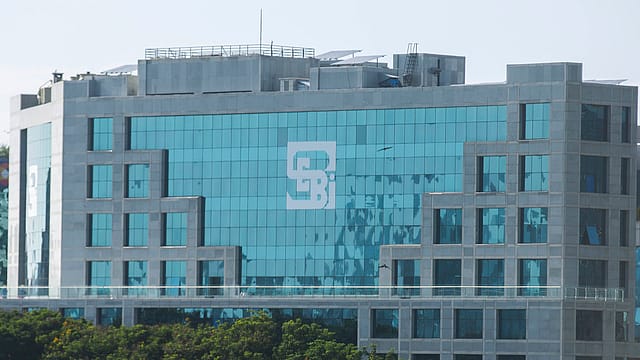SAT fines SEBI ₹5 lakh for 'lackadaisical approach' in defreezing demat account of Kirloskar family
ADVERTISEMENT

The capital markets regulator SEBI has been fined ₹5 lakh by the Securities Appellate Tribunal (SAT) for taking a “lackadaisical approach” in de-freezing the demat accounts of five members of the Kirloskar family. The fine was imposed after the Securities and Exchange Board of India (SEBI) didn’t take any action amid blame game with NSDL even after the tribunal ordered to de-freeze the accounts of Kirloskar family members last year.
According to the SAT order, the SEBI’s approach was “contrary to the spirit of the SEBI Act” and the interest of the appellants (Kirloskar family) were “least considered and apathy was writ large”.
“We dispose of the Misc. Applications directing the SEBI to pay cost of ₹5 lakhs to be deposited before the registrar of this tribunal within two weeks from today,” the SAT says in its order issued on Monday. The order also notes that if SEBI finds that the fault lay with NSDL, it will be “open to them to take appropriate remedial measures against NSDL”.
“SEBI should have been more diligent in ensuring compliance of the orders of this Tribunal and by taking a lackadaisical approach the interest of the investors suffered. For more than a year the appellants shares remained frozen inspite of their appeals have been allowed,” Presiding Officer Justice Tarun Agarwala and Technical Member Meera Swarup says in its order.
In October 2020, the SEBI had passed an order barring Atul, Rahul, Alpana and Arti Kirloskar as well as Jyotsna Kulkarni (appellants) from accessing the securities market for a period of six months for alleged acts of fraud while dealing in the shares of Kirloskar Brothers Ltd (KBL) in 2010. Atul Kirloskar, promoter of Kirloskar Industries; his wife Arti Atul Kirloskar; Rahul Kirloskar and his wife Alpana R Kirloskar wife; and, Jyotsna Kulkarni, wife of promoter Gautam Kulkarni, are family members.
The matter pertains to ten year old case of the promoter group of KBL selling shares in the company to Kirloskar Industries (KIL) in which these directors and promoters were direct beneficiaries. They were allegedly charged with failure in discharging their duty to act in good faith and with due diligence in the performance of their duties, causing unfair treatment to the minority shareholders of KIL in a fraudulent manner and violated the provisions, as per SEBI order.
The order was challenged by the appellants before the SAT where the tribunal stayed the order in December 2020, subject to an undertaking to the effect that they would not sell their shares in KIL. As a result, their demat accounts were de-freezed except to the extent of the shares held by them in KIL. In October 2022, SAT quashed the SEBI order of October 2020 in its final order.
Despite SAT’s order, the appellants’ shares in KIL remained frozen following which the Kirloskars wrote an email to the SEBI requesting it to direct National Securities Depository Limited (NSDL) to unfreeze the shares held by them. When the NSDL asked the SEBI for guidance on the issue, they allegedly received no response from the capital market regulator.
Finally, Kirloskars moved to the SAT again this year, seeking directions for defreezing their shares in KIL.
The tribunal in its final order observed that both SEBI and NDSL played “blame game” for non-compliance of the SAT order. “According to SEBI, they had addressed an email dated December 13, 2022 directing NSDL to comply with the final order of SAT. NSDL admits receiving this email but contends that they were unable to comply as the PAN Nos. of the applicants were not given. We also find that NSDL had written an email on March 13, 2023 seeking directions from SEBI on which no response was given by SEBI. SEBI contends that the email was sent to a wrong person. We also find that the appellants had also sent an email dated February 22, 2023 to SEBI requesting SEBI to direct NSDL to unfreeze the shares of the appellants. This email has not been denied by them and no action was taken by SEBI on this email.”